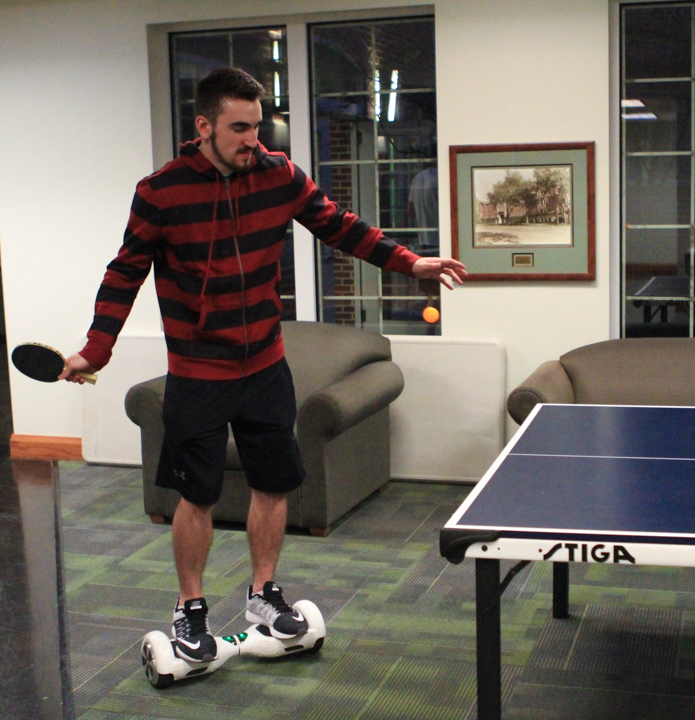
Hoverboards and similar lithium battery-powered transportation devices will no longer be allowed in residential facilities as of spring break 2016.
The change is being made due to safety concerns, according to an email from Baylor Campus Living & Learning, .
“We started looking at [hoverboard policies] shortly after winter break when the stories of them catching on fire became a national headline,” said Ryan Cohenour, associate director for housing administration. “Also, when airlines banned them, it caught our attention.”
The timing of the policy change is intended to give students a chance to take their devices home over the break, Cohenour said. The number of students in dorms who use hoverboards is very small, according said various community leaders and office assistants.
“I think if it’s a hazard then it should definitely be enforced,” said Emily Fields, the office assistant in South Russell Residence Hall.
Students will not be able to ride, store or charge hoverboards in Baylor residences once the policy goes into effect. Hoverboards will be added to the list of prohibited items and will be monitored by both regular and random safety checks by community leaders.
“I think they have equal weight [to other prohibited items], as they pose a safety risk to other students,” Cohenour said. “We aren’t designed to have them on campus because of potential risks to other students.”
No mentions of removal of hoverboards from campus as a whole have been made.
“I think when they are being charged and not monitored, that is one of the bigger issues,” Cohenour said.
Included in the email informing of new policies are links to reported incidents and investigations dealing with hoverboards spontaneously combusting due to the engineering of the devices. Also, there is a link to the U.S. Consumer Product Safety Commission, that includes a letter urging consumers to take caution when considering buying products with hidden hazards like hoverboards.
“I think, this is a good change merely because there is a huge potential for a large disaster and is an easy way to prevent it,” Cohenour said. “I think as time goes on, it would be something that technology changes and is something that could definitely be looked at again.”





